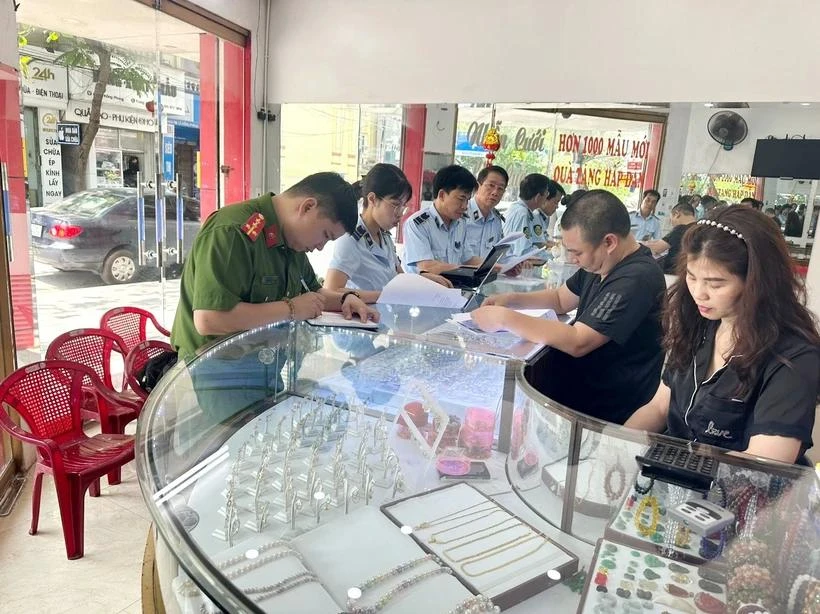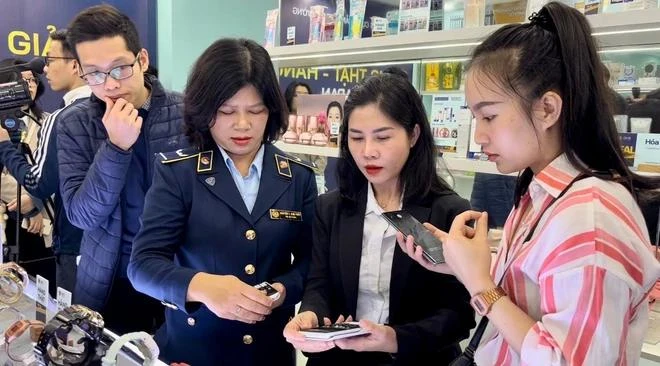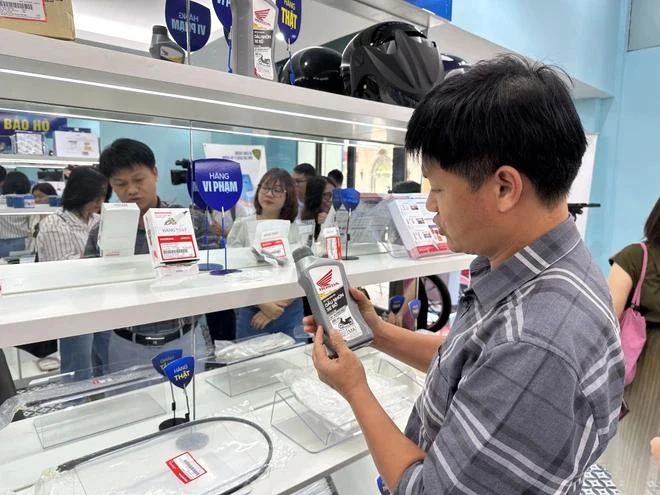Counterfeit goods, intellectual property infringements hurt local market
Protecting the brand not only helps businesses prevent counterfeit goods but also increases the brand value in relationships with partners and customers, experts said.

rotecting the brand not only helps businesses prevent counterfeit goods but also increases the brand value in relationships with partners and customers, experts said.
In the first two months of operation, market management forces nationwide discovered many gold businesses violating regulations, including fake branded products.
Not only consumers but also businesses are heavily affected by the issue of counterfeit goods and goods that violate intellectual property rights.
Pham Thi Bich Thuy, a representative of the Binh Tay Import-Export Company - the exclusive distributor of Casio calculators and watches in Vietnam, stated that perpetrators often target products with advanced technology to produce fake goods.
Taking advantage of consumers’ desire to buy cheap goods, while genuine products have higher prices, many counterfeit products of this brand are openly sold on e-commerce platforms, Thuy said.

According to Dam Hai Long, who oversees the industrial property of Panasonic Vietnam, counterfeit household appliances and electrical equipment imitating the Panasonic brand are prevalent. These products are being sold on social media platforms and some e-commerce websites at cheap prices without genuine warranty cards, manufacturers’ specifications, and original packaging.
Nguyen Dang Sinh, Chairman of the Vietnam Association for Anti-counterfeiting and Trademark Protection (VATAP), said counterfeit goods are among the pressing issues in society. Most reputable and branded products favoured by consumers are at risk of being counterfeited.
Several surveys have shown that counterfeit goods, poor-quality items, and goods of unclear origin are prevalent across various segments of the market, from small grocery stores to supermarkets in urban areas.
Counterfeit goods and imitations come in various designs, are diverse in types and flexible in pricing, making it difficult for authorities to inspect and control, Sinh said.
Nguyen Duc Le from the General Department of Market Management said that the tactics of counterfeiters and those infringing on intellectual property rights are constantly changing.
Therefore, enterprises and brand owners with products sold in the Vietnamese market need to enhance cooperation and appoint legal representatives to support market management forces in inspecting and handling violations.

Functional forces are focusing on implementing a plan to combat counterfeit goods, goods of unknown origin, and intellectual property infringement in the 2021-2025 period. The goal is to prevent the open sale of counterfeit goods, goods infringing on intellectual property rights, and goods of unknown origin on e-commerce platforms. This work should eliminate the open production and trading of these goods in craft villages, Le said.
The Hanoi Management Department has signed a cooperation agreement with Viettel Post Hanoi to combat smuggling, counterfeit goods, prohibited items, goods of unknown origin, and goods infringing on intellectual property rights transported via the postal service.
Enterprises have been closely collaborating with relevant authorities to detect and handle counterfeit goods on the market and expanding their distribution networks for genuine products to reach more consumers.
Market management agencies utilise communication activities to help consumers distinguish between genuine and counterfeit goods./.








